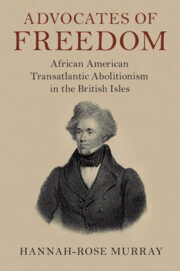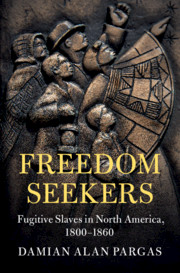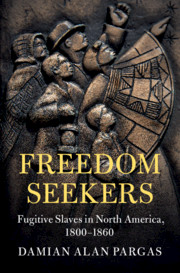Advocates of Freedom
During the nineteenth century and especially after the Civil War, scores of black abolitionists like Frederick Douglass, Moses Roper and Ellen Craft travelled to England, Ireland, Scotland, and parts of rural Wales to educate the public on slavery. By sharing their oratorical, visual, and literary testimony to transatlantic audiences, African American activists galvanised the antislavery movement, which had severe consequences for former slaveholders, pro-slavery defenders, white racists, and ignorant publics. Their journeys highlighted not only their death-defying escapes from bondage but also their desire to speak out against slavery and white supremacy on foreign soil. Hannah-Rose Murray explores the radical transatlantic journeys formerly enslaved individuals made to the British Isles, and what light they shed on our understanding of the abolitionist movement. She uncovers the reasons why activists visited certain locations, how they adapted to the local political and social climate, and what impact their activism had on British society.
- Creates a framework for analysing activist resistance to slavery in the British Isles
- Highlights anti-slavery activism in Britain after the American Civil War, an area vastly neglected by scholars
- Updates and radically alters the scholarly field on transatlantic abolitionism after 1865
Reviews & endorsements
'Hannah-Rose Murray’s accomplished study is a tour-de-force of scholarly research that challenges our understanding of transatlantic African American abolitionists by presenting original insights about their impact on British audiences and evolving print and performance cultures.' Barbara McCaskill, Professor of English and author of Love, Liberation and Escaping Slavery: William and Ellen Craft in Cultural Memory
'Advocates of Freedom is a thoroughly researched, clearly written, interdisciplinary study of transatlantic African American abolitionists. Based on a mind-bogglingly extensive mapping project that showcases new and radical speech-making and performances, it will profoundly alter our perceptions of nineteenth century Black Atlantic culture and history.' Alan Rice, Professor in English and American Studies, University of Central Lancashire, Preston
'Murray’s work maps the abolitionist and anti-lynching activism of African American men and women in Britain within those cartographies of freedom made possible by their self-emancipatory work. She identifies performance and print culture as vehicles of resistance in the struggle against slavery and the violent racism that both accompanied it and its legacy.' Fionnghuala Sweeney, University of Newcastle
‘… a marvelous recovery of the panoply of events, networks, strategies, performances, and tropes that abolitionists employed to convince and capture audiences abroad. In a wealth of detail drawn from local newspapers, Murray examines and deconstructs the ‘performative strategies’ of a variety of Black abolitionists - performances, she notes, that were created and managed out of the experience of slavery engaging with the expectations and preconceptions of white European audiences.’ J. A. Jaffe, Choice
‘Murray’s book is excellent, an important and richly detailed contribution to the history of British abolitionism and popular culture.’ Padraic X. Scanlan, Victorian Studies
‘Murray has produced a significant volume on Black American activism in the British Isles. Accompanying the text is a digital project mapping over time and space the locations of Black abolitionist lecturers. This is an invaluable resource for researchers and public audiences alike and is an excellent example of using the digital sphere to promote critical understandings of the past.’ Michael Jirik, H-Net Reviews
Product details
June 2023Paperback
9781108720410
387 pages
230 × 150 × 25 mm
0.609kg
Available
Table of Contents
- Introduction: 'To Tell The Truth': African American activism in the British Isles 1835–1895
- 1. 'It Is Time For The Slaves to Speak': Moses Roper, white networks and 'Lying Inventions' 1835–1855
- 2. 'All the Bloody Paraphernalia of Slavery': Frederick Douglass' performative strategies on the Victorian stage
- 3. '[They Have] Not Ceased to Hold My Hand Since': Frederick Douglass, print culture and abolitionist networks
- 4. To 'Frighten The Hyena Out Of His Ferocity': black activism in Britain 1850–1860
- 5. 'I Would Much Rather Starve In England, A Free Woman, Than Be A Slave': black women and adaptive resistance 1850–1865
- 6. 'Have No Fellowship I Pray You, With These Merciless Menstealers': black activism, the Confederacy and scientific racism during the Civil War 1861–1865
- 7. 'My Name is Not Tom': Josiah Henson, Uncle Tom's Cabin, and adaptive resistance after the Civil War 1876–1877
- 8. 'The Black People's Side Of The Story': Ida B. Wells and the anti-lynching crusade in Britain 1893–1894
- 9. 'To Tell the Story of the Slave': the legacy of African American transatlantic resistance.





